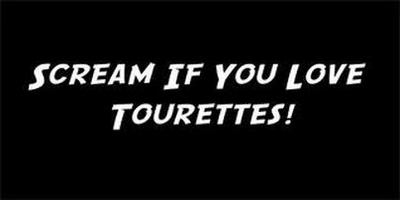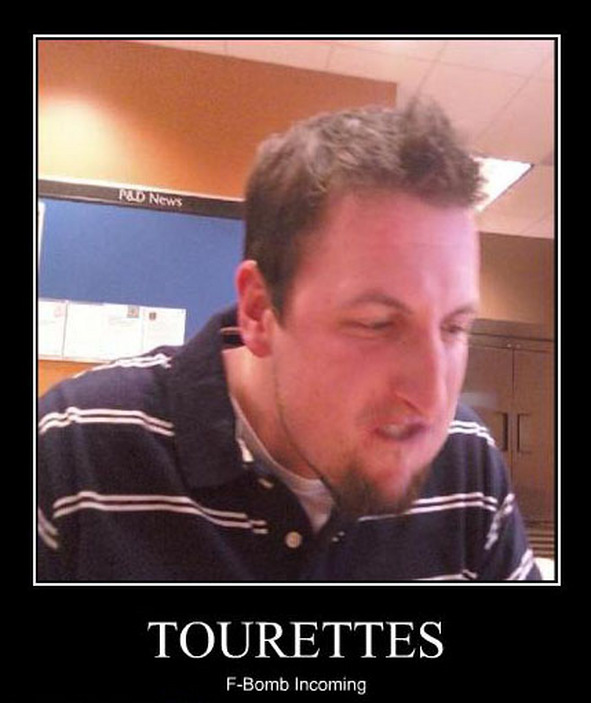Twitch and shout ! Tourette's Syndrome

What do Alexander the Great and Mozart have in common. They were probably both members of the "Twitch and Shout Club. " They had brain hiccups.
If your brain had hiccups, how do you think they would affect your behavior ?
The answer might depend upon which part of your brain had the hiccups. If it was a part of your brain that controlled movement of some body part then maybe that body part have an intermitent twitch or jerk. If it was in a part of your brain that controlled language then you might burst out with the same phrase over and over again. If you are like a lot of us your brain's favorite phrases might be somewhat "expletive deleted".
If the hiccup comes from an area of your brain that is purely concerned with thinking deep thoughts, then you might have the same thought or feeling over and over again, whether you wanted to or not. And just like with a hiccup, although you may be able to stifle the urge for a short while, eventually it busts through to the surface.
Such a condition actually does exist, although it does not go by the name Brain Hiccups. If this disorder were a song an appropriate name might be “Twitch and Shout”. (This is not the official name for the disorder, although it is the name of a critically acclaimed play about it.)
Click here for a video of Tourette's ( actually a scene from Deuce Bigalow, Amercian Gigolo )
Or click here for a video of Tourette's done by a charming young woman who is an actual tourette's syndrome person, and she explains what it is like and what the symptoms are.
If your brain had hiccups, how do you think they would affect your behavior ?
The answer might depend upon which part of your brain had the hiccups. If it was a part of your brain that controlled movement of some body part then maybe that body part have an intermitent twitch or jerk. If it was in a part of your brain that controlled language then you might burst out with the same phrase over and over again. If you are like a lot of us your brain's favorite phrases might be somewhat "expletive deleted".
If the hiccup comes from an area of your brain that is purely concerned with thinking deep thoughts, then you might have the same thought or feeling over and over again, whether you wanted to or not. And just like with a hiccup, although you may be able to stifle the urge for a short while, eventually it busts through to the surface.
Such a condition actually does exist, although it does not go by the name Brain Hiccups. If this disorder were a song an appropriate name might be “Twitch and Shout”. (This is not the official name for the disorder, although it is the name of a critically acclaimed play about it.)
Click here for a video of Tourette's ( actually a scene from Deuce Bigalow, Amercian Gigolo )
Or click here for a video of Tourette's done by a charming young woman who is an actual tourette's syndrome person, and she explains what it is like and what the symptoms are.
Tourette's have increased ability to control their mind
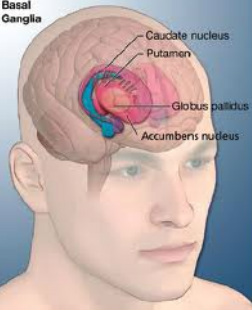
Scientific American April 2011
People with the sort of twitches and outbursts of Tourette's might be expected to have less ability to control their minds than than others. But just the reverse turns out to be true.
The surprise is that children with Tourette's actually have greater mental control than other children. This may be because they spend so much time and energy trying to subdue their Tourette's syndrome. These children performed better on tasks requiring focus and quick attention and reaction time. Their brains also communicated more efficiently between left and right sides and in the areas involving control of complex tasks. So in some ways people with Tourette's have superior brains !
People with the sort of twitches and outbursts of Tourette's might be expected to have less ability to control their minds than than others. But just the reverse turns out to be true.
The surprise is that children with Tourette's actually have greater mental control than other children. This may be because they spend so much time and energy trying to subdue their Tourette's syndrome. These children performed better on tasks requiring focus and quick attention and reaction time. Their brains also communicated more efficiently between left and right sides and in the areas involving control of complex tasks. So in some ways people with Tourette's have superior brains !
Dr. Gilles de la Tourette

The official name for “brain hiccups” is “Tourette’s Syndrome”. It is named after a French neurologist named Georges Gilles de la Tourette. Dr. Gilles de la Tourette made medical history in 1825 by being the first one to publish a medical journal article describing these unusual and bizarre symptoms.
His patient was the Marquise de Dampierre, a French noblewoman who had tics and twitches of her whole body, as well as frequent outbursts of involuntary sounds ( including swearing - Tourette’s Syndrome is one of the few medical conditions that can force a person to curse. )
This cursing has the official medical term "coprolalia". Fancy latin words for "shit talk". And gives Tourette's one of it's most unusual and interesting symptoms - the forced swearing. Patients have involuntary outbursts of obscene words or socially inappropriate derogatory remarks
Tourette’s Syndrome is thought to be amazingly common, although very seldom diagnosed accurately. Up to one percent of the general population suffers from it to some degree, and one quarter of us are carriers for the gene that causes it. Tourette’s is also related to almost every behavioral disorder of childhood, and more than a few of those of adulthood. It’s list of symptoms also read like something out of Ripley’s Believe It Or Not.
His patient was the Marquise de Dampierre, a French noblewoman who had tics and twitches of her whole body, as well as frequent outbursts of involuntary sounds ( including swearing - Tourette’s Syndrome is one of the few medical conditions that can force a person to curse. )
This cursing has the official medical term "coprolalia". Fancy latin words for "shit talk". And gives Tourette's one of it's most unusual and interesting symptoms - the forced swearing. Patients have involuntary outbursts of obscene words or socially inappropriate derogatory remarks
Tourette’s Syndrome is thought to be amazingly common, although very seldom diagnosed accurately. Up to one percent of the general population suffers from it to some degree, and one quarter of us are carriers for the gene that causes it. Tourette’s is also related to almost every behavioral disorder of childhood, and more than a few of those of adulthood. It’s list of symptoms also read like something out of Ripley’s Believe It Or Not.
Coprolalia and Echolalia
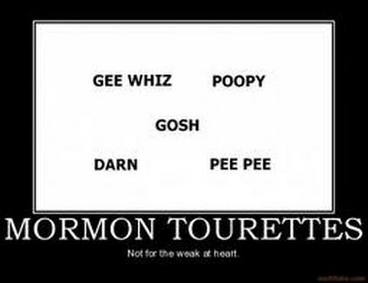
The syndrome is usually defined as multiple involuntary tics or vocal outbursts, which often wax and wane in severity, beginning before the age of 21. But this official definition doesn’t even begin to adequately describe the symptoms.
The most usual starting symptoms can be as subtle as children that begin to blink their eyes continuously for no apparent reason. They can go on to include throat clearing sounds, making clicking noises with the tongue, tugging at bits of hair, and problems with impulse control or defiant behavior. Just the sort of symptoms that initially seem only mildly irritating, but eventually can drive parents to the point of infanticide.
Often the “hiccups” surface as irresistible urges to say or do certain things. These can be movements, repetitive and ritualistic actions, or sudden vocalizations. The most famous of these is mentioned above - coprolalia, or shit-talk. Another common vocal tic is Echolalia, (echoing words ) which is the repeating of a sound, word, or phrase just heard. A sound, word, or phrase just heard. A sound, word, or phrase just heard.
Click here for a Tourette's patient explaining coprolalia
Click here for a young woman explaining and experiencing coprolalia during the video.
The most usual starting symptoms can be as subtle as children that begin to blink their eyes continuously for no apparent reason. They can go on to include throat clearing sounds, making clicking noises with the tongue, tugging at bits of hair, and problems with impulse control or defiant behavior. Just the sort of symptoms that initially seem only mildly irritating, but eventually can drive parents to the point of infanticide.
Often the “hiccups” surface as irresistible urges to say or do certain things. These can be movements, repetitive and ritualistic actions, or sudden vocalizations. The most famous of these is mentioned above - coprolalia, or shit-talk. Another common vocal tic is Echolalia, (echoing words ) which is the repeating of a sound, word, or phrase just heard. A sound, word, or phrase just heard. A sound, word, or phrase just heard.
Click here for a Tourette's patient explaining coprolalia
Click here for a young woman explaining and experiencing coprolalia during the video.
Abnormal brain biochemistry - What makes you tic ?
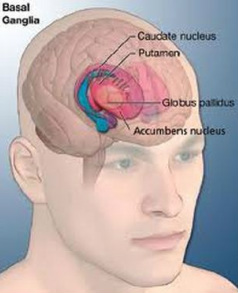
This persistent irresistible urge to say or do things is similar to Obsessive-Compulsive Disorder, in which a person feels that something must be done over and over, such as checking to make sure that the door is locked. Many Tourette’s Syndrome kids also have Attention Deficit Disorder, depression, sleep disorders, and (althought I.Q. is normal) learning disabilities.
The cause of Tourette’s Syndrome is abnormal brain biochemistry. Abnormal amounts of a brain messenger chemical called Dopamine lead to most of the symptoms. Drugs which affect Dopamine levels are therefore often used in treatment, although whenever possible we try to avoid giving children these powerful medications.
The cause of Tourette’s Syndrome is abnormal brain biochemistry. Abnormal amounts of a brain messenger chemical called Dopamine lead to most of the symptoms. Drugs which affect Dopamine levels are therefore often used in treatment, although whenever possible we try to avoid giving children these powerful medications.
B.C. Surgeon with Tourette's

Famous people with Tourette's
Tourette’s even has a famous B.C. connection. A prominent surgeon in the province suffers from the disease. A very detailed description of his symptoms can be found in the Oliver Sacks bestseller “ An Anthropologist on Mars.” An entire chapter in this book describes the good surgeons behavioral outbursts, sudden body jerks and twitches, and frequent involuntary and profane vocal utterances. (Actually many surgeons act like this - but this one has a better excuse than most.)
Yet despite this our Touretter Physician - Dr. Mort Doran of Cranbrook - has no problem performing complicated surgery, and even flies his own airplane. He has compulsions to make verbal utterances , which he controls in public for the most part. ( He tends to say "hideous" frequently and involuntarily. ) He also has the compulsive urge to twist his watch band , and to and tap passers - by on the head. He can usually restrain himself, but lineups at the supermarket can be somewhat amusing. He taps his kids on the head at home non - stop, and they make a game of seeing if they can duck in time.
Yet despite this our Touretter Physician - Dr. Mort Doran of Cranbrook - has no problem performing complicated surgery, and even flies his own airplane. He has compulsions to make verbal utterances , which he controls in public for the most part. ( He tends to say "hideous" frequently and involuntarily. ) He also has the compulsive urge to twist his watch band , and to and tap passers - by on the head. He can usually restrain himself, but lineups at the supermarket can be somewhat amusing. He taps his kids on the head at home non - stop, and they make a game of seeing if they can duck in time.
Dr. Mort Doran
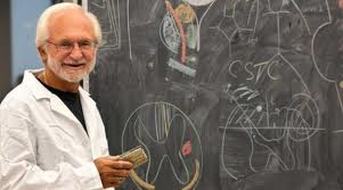
Dr. Doran is often able to suppress his urges for a short time. But then he will to find an empty room and tap the walls compulsively for a few minutes to relieve his psychological stress. Yet his tics and twitches do not affect his surgery at all. This is similar to how someone with a wicked stutter can sing without any trace of speech problems.
Here Dr. Doran is seen lecturing at an anatomy class at Calgary Medical School, where he is a professor. He flies his own small plane between his surgical practice in Cranbrook and his teaching position at the University of Calgary.
Here Dr. Doran is seen lecturing at an anatomy class at Calgary Medical School, where he is a professor. He flies his own small plane between his surgical practice in Cranbrook and his teaching position at the University of Calgary.
Diagnosis

The most difficult part about Tourette’s Syndrome is making the diagnosis, because so many of the symptoms can just seem to be normal little quirks and idiosyncracies. But if you or someone around you has recurrent eyeblinking, grimacing, lip smacking, or head jerking, think of the possiblity of Tourettes. If accompanied sometmes by grunting, hissing, teeth clicking, deep breathing, sniffing or cursing, then someone near and dear to you may indeed have a case of brain hiccups.
Famous people with Tourette's - Howard Hughes
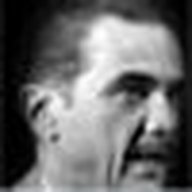
Howard Hughes
Being one of the richest man in history Howard Hughes had always been lost in dreams, most of them being born from movies or figments of imagination. He seemed to dislike or even fear all that was too real, although his career in aviation would prove otherwise.
As he got older everything seemed like an enemy to him, he would not touch anything without gloves or tissue to protect his hands from what he saw as bacteria and disease. Then he would contradict his excess of sanity by barely eating and taking too much medecine. He was one of the richest man yet he was ill, and suffered from tourettes.
As he got older everything seemed like an enemy to him, he would not touch anything without gloves or tissue to protect his hands from what he saw as bacteria and disease. Then he would contradict his excess of sanity by barely eating and taking too much medecine. He was one of the richest man yet he was ill, and suffered from tourettes.
Dan Ackroyd

Dan Ackroyd
Dan Ackroyd - was born on Dominion Day at the Ottawa General Hospital in Ottawa, Ontario, Canada. Dan was diagnosed with tourette's and asperger syndromes at an early age, but the symptoms seem to have disappeared when he was around 14. The diagnosis of Asperger syndrome did not exist in the 1960s, when Aykroyd was a preteen. It involved mostly grunting and physical tics through nervousness.
Mozart
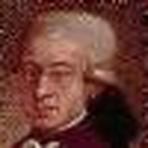
Mozart
Wolfgang Amadeus Mozart - (1756-1791) In late 1992, the British Medical Journal published an article by endocrinologist Benjamin Simkin, M.D. speculating that Mozart had Tourette Syndrome. Apparently he wrote several letters to his cousin Maria that contained many obscene words, especially words having to do with bodily functions. It has also been documented that he was hyperactive, suffered from mood swings, had tics, and loved made-up words. Despite these behaviors, we will probably never know for certain whether Mozart had TS.
Tim Howard

The goalkeeper for Manchester United, he played in the 2000 Olympics. It has been said that Tim's symptoms started appearing in elementary school. He was considered a discipline problem by some of his teachers, and was often teased in school. Tim serves as a great inspiration for anyone with Tourettes who wishes to participate in athletics. He has shown due to his Olympic participation that Tourettes will not hold someone back; it is possible to still pursue a great and successful athletic career.
Howie Mandell
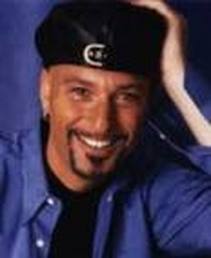
Comedian and brains behind several television series, Howie Mandel has managed to live his life to the fullest possible while still dealing with his Tourettes. He owns 2 different homes, including one that is kept sterile so that he can stay there free of germs in the event that his germ obsession kicks up. He has been known for television shows such as “Bobby's World” and “St. Elsewhere.” Howie has made it clear that having Tourettes has definitely not stopped him from reaching a great plateau many comedians would love; he has been voted as one of the 100 Best Stand Up Comedians of all time. Another piece of proof that Tourettes does not stop success in careers.
David Beckham

Soccer player from the United Kingdom David Beckham is another example of Tourettes not being enough to hold back an incredible athlete. While he has struggled with obsessions and compulsions, he still manages to make it work around his career so that he can do the best he possibly can. Because of being from the United Kingdom, it also goes to show that Tourettes is something that can strike anyone in any country, not just the United States.
Jim Eisenreich

Baseball has had a major league player who was diagnosed with Tourettes. He has played with the Florida Marlins and the Philadelphia Phillies and since retiring enjoys spending much of his time helping teach people about Tourettes. Jim is a good example of someone who was diagnosed very late in life; he was not diagnosed until he was a professional ball player, unlike most others who are diagnosed when they are in elementary school.
Outfielder Jim Eisenreich played 15 years in the majors in spite of missing the 1985-86 seasons. He hit an impressive .361 in 1996 in 338 at-bats, and was also over .300 several other times. In the 1997 World Series he went 4-for-8.
He made his big league debut with the Minnesota Twins in 1982. He hit .303 with the Twins, but was placed on the disabled list when he began suffering symptoms of Tourette's Syndrome, which were not properly diagnosed at the time. He struggled for two years to overcome the disorder but retired in 1984. However, the Kansas City Royals eventually signed him, and he returned to the major leagues in 1987. He was greatly helped when he received medical attention for this condition. There was some doubt whether Eisenreich would be able to perform at a major-league level in light of the medication he was required to take, but he proved the doubters wrong. He homered in two different World Series. He retired after the1998 season with a career batting average of .290.
Outfielder Jim Eisenreich played 15 years in the majors in spite of missing the 1985-86 seasons. He hit an impressive .361 in 1996 in 338 at-bats, and was also over .300 several other times. In the 1997 World Series he went 4-for-8.
He made his big league debut with the Minnesota Twins in 1982. He hit .303 with the Twins, but was placed on the disabled list when he began suffering symptoms of Tourette's Syndrome, which were not properly diagnosed at the time. He struggled for two years to overcome the disorder but retired in 1984. However, the Kansas City Royals eventually signed him, and he returned to the major leagues in 1987. He was greatly helped when he received medical attention for this condition. There was some doubt whether Eisenreich would be able to perform at a major-league level in light of the medication he was required to take, but he proved the doubters wrong. He homered in two different World Series. He retired after the1998 season with a career batting average of .290.
Mahmoud Abdul-Rauf
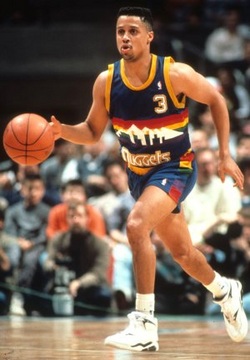
Basketball is not left out in terms of athletes with Tourettes. Mahmoud is diagnosed with Tourettes and has played for the Denver Nugget and the Sacramento Kings. He was formerly known as Chris Jackson and has been a great inspiration for those looking at athletics.
Abdul-Rauf (formerly named Chris Jackson) was one of the leading free-throw shooters in the NBA. He is featured in an independent documentary called "Twitch and Shout," which was produced by two people with TS. It has been suggested the Abdul-Rauf's obsessive-compulsive Tourette Syndrome traits underlie his amazing free throw success.
Abdul-Rauf (formerly named Chris Jackson) was one of the leading free-throw shooters in the NBA. He is featured in an independent documentary called "Twitch and Shout," which was produced by two people with TS. It has been suggested the Abdul-Rauf's obsessive-compulsive Tourette Syndrome traits underlie his amazing free throw success.
Steve Wallace

Many NASCAR fans do not realize that Steve Wallace is another person that can be added to the list of famous people with Tourettes syndrome. Many do not think it is possible to control the tics in order to drive at the speeds necessary in order to truly participate in NASCAR however, Steve has proven that is it very much possible to do.
Rodney Marks

In a world where tics and compulsive behavior is normal, most people do not think it is possible to have a very technical job that is quite stressful. However, Rodney Marks is an Australian astrophysicist who has proven that it is possible to do very detailed work and still suffer from Tourettes.
Marks was born in Geelong, Australia and educated at the University of Melbourne, later obtaining a PhD from the University of New South Wales. Marks had wintered over at the South Pole station in 1997–1998, before being employed at the South Pole with the Smithsonian Astrophysical Observatory , working on the Antarctic Submillimeter Telescope and Remote Observatory , a research project for the University of Chicago at the Amundsen-Scott South Pole Station.
Marks was born in Geelong, Australia and educated at the University of Melbourne, later obtaining a PhD from the University of New South Wales. Marks had wintered over at the South Pole station in 1997–1998, before being employed at the South Pole with the Smithsonian Astrophysical Observatory , working on the Antarctic Submillimeter Telescope and Remote Observatory , a research project for the University of Chicago at the Amundsen-Scott South Pole Station.
.

.

